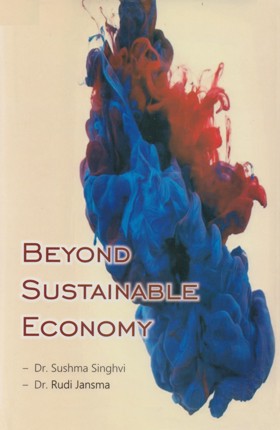Though the Quakers suffered for being an odd group, they maintained their ideal of simplicity, though its interpretation has changed over time.
The most famous American Quaker, John Woolman (1720-1772), wrote extensively his objections to slavery. A successful merchant and celebrated preacher, Woolman rued his early financial success and consciously shifted from shop keeping to tailoring in order to allow more time for his itinerant preaching. He writes about this decision in his journal:
Through the mercies of the Almighty I had in a good degree learned to be content with a plain way of living. I had but a small family, that on serious consideration I believed Truth did not require me to engage in much cumbrous affairs. It had been my general practice to buy and sell things really useful. Things that served chiefly to please the vain mind in people I was not easy to trade in, seldom did it, and whenever I did I found it weaken me as a Christian.
The increase of business became my burden... I believed Truth
required me to live more free from outward cumbers... I lessened my
outward business...
In merchandise it is the custom where I lived to sell chiefly on credit, and poor people often get in debt, and when payment is expected, not having wherewith to pay, their creditors often sue for it at law. Having often observed occurrences of this kind, I found it good for me to advise poor people to take such goods as were most useful and not costly.
In the time of trading, I had an opportunity of seeing that too liberal a use of spirituous liquors and the custom of wearing too costly apparel lead some people into great inconveniences, and these two things appear to be often connected one with the other. For by not attending to that use of things which is consistent with universal righteousness, there is an increase of labor which extends beyond what our Heavenly Father intends for us.[1]
On the topic of slavery, Woolman commented that "Where slaves are purchased to do our labour, numerous difficulties attend it."[2] While visiting sailors and their families in Nantucket, he commented on the difficulty of the fisherman's life and encouraged them to "educate their children in true humility and the disuse of all superfluities, reminding them of the difficulties husbands and sons were frequently exposed to at sea, and that the more plain and simple their way of living was, the less need of running great hazards to support them in it." He goes on to comment that:
Where people were truly humble... and were content with a plain way of a life, that it had ever been attended with more true peace and calmness of mind than those have had who, aspiring to greatness and outward show, have grasped hard for an income to support themselves in it. And as I observed they had few or no slaves amongst them, I had to encourage them to be content without them, making mention of the numerous trouble and vexations which frequently attend the minds of people who depend on slaves to do their labor.[3]
Noting that people are often oppressed by their labor, Woolman poses the query and his thoughtful response:
Do I in all my proceedings keep to that use of things which is agreeable to universal righteousness? And then there hath some degree of sadness at times come over me, for that I accustomed myself to some things which occasioned more labour than I believed divine wisdom intends for us.[4]
In his book titled A Plea for the Poor, Woolman notes that a relationship exists between wealth, power, and war:
Wealth is attended with power, by which bargains and proceedings contrary to universal righteousness are supported; and here oppression, carried on with worldly policy and order, clothes itself with the name of justice and becomes like a seed of discord in the soil; and as this spirit which wanders from the pure habitation prevails, so the seed of war swells and sprouts and grows and becomes strong, till much fruits are ripened. Thus cometh the harvest spoken of by the prophet, which is a 'heap in the day of grief, and of desperate sorrow.'[5]
This indictment of possessiveness and accumulation rings true when one examines the root causes of war.
This brings us to a discussion of the current state of affairs in American and, increasingly, global culture. We have looked at the attitude toward materiality in Buddhist doctrine and monastic practice, and in Christian teachings and Quaker practice. In all instances, the world of material things is less important than issues of ultimate concern and, in general, greed for the things of the world creates an impediment, nearly insurmountable, to spiritual life. In the writings of John Woolman, we see an economic critique of the difficulties that attend preoccupation with "superfluities." Debt can amass, resulting in lawsuits. Bad feelings can emerge if workers are not free and properly compensated. Because of covetousness, the wealthy will wage war to protect and increase their interests. People might work excessively to obtain luxuries. To be encumbered with material things restricts the soul from attaining its full potential.
 Dr. Christopher Key Chapple
Dr. Christopher Key Chapple
 Dr. Rudi Jansma
Dr. Rudi Jansma
